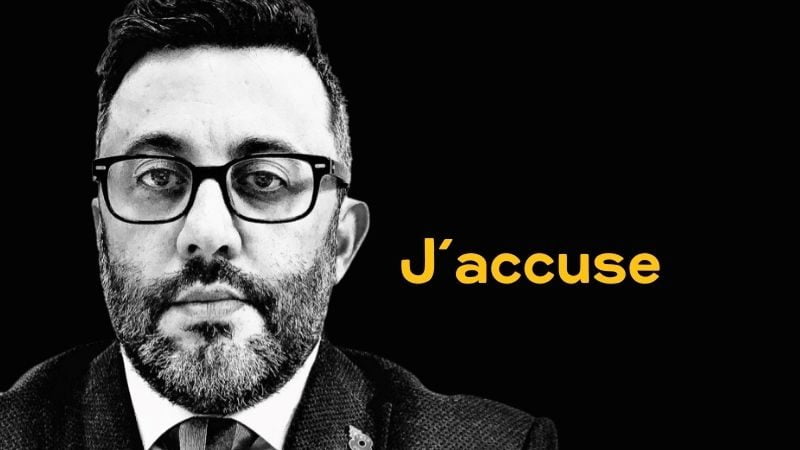Those familiar with the proverbial expression “the law is an ass” would know that it describes a situation when the law is applied contrary to common sense. Often, when scrolling through the news from the courts, citizens are prone to exclaim in dismay that justice has not been correctly meted out, particularly when referring to the apportionment of punishment which is deemed insufficient.
For the layperson, “the law” lies mostly in the realm of abstract assumptions based around a combination of Hollywood narratives and whatever sense of civic justice has been instilled during his or her upbringing. Reality is much more complex. Laws, including the most basic norms, are enacted by institutions enjoying the trust of the people. They should, in theory, reflect a combination of natural law and the common mores of society.
The work of the courts is to interpret and apply the law. That of lawyers is to guide the court to the correct interpretation through their arguments and pleadings before the court. Laws, judges, and lawyers – none of these are perfect and are all conditioned by human nature. Having said that, the normal day-to-day functioning of the legal system should, in theory, guarantee clarity and maintain the proper balance in society.
Every society, I hasten to add, is reflected in its laws. It is not a coincidence that we can differentiate between democracies and dictatorships from the way their laws are written and applied. Still, in liberal democracies there is a legitimate expectation of a clear basic set of norms and rights applied universally without distinction.
The overturning of Roe v Wade by the US Supreme Court is an example of the nuanced application of basic norms. Back in 1973, the Supreme Court had decided that the US Constitution did not allow for laws prohibiting access to abortion. Almost fifty years later, the same Supreme Court has overturned that interpretation and “reread” the Constitution. How can that be? Without going into the fine details of legal philosophy let us say that there is an underlying political element that conditions different readings of the same laws.
Does that mean that the law, in this case the Constitution, is incoherent? What it really means is that there are two Americas constantly battling over time to assert their definition of certain basic rights. This is reflected in the varying make-up of the Supreme Court as justices are replaced by the government of the day thus altering its composition.
It’s a fine balance that can be frustrating but works. In other countries like our own, the reading of the law can be convenient or inconvenient to the representatives of the people. Take for example the Prudente case of the unfortunate American mother who had a miscarriage while in Malta and risked losing her life due to the refusal of Maltese doctors to terminate the pregnancy.
Much was made of the letter of the law. Bar a few distinguished dissidents the main line was held that no circumstance justified an abortion in Malta – even when the life of the mother was in possible peril and the unborn child had no chance of survival. Aside from the horrible psychological ordeal that the parents might have endured, it was extremely depressing to see the obstinate inflexibility with which the (narrow-minded) letter of the law was being applied.
Prudente plans to sue the government of Malta, a government whose lawyers in Court are not passing a happy moment. We had the letting off of two of Yorgen Fenech’s lawyers on a technicality this week. It was not for want of laws making illegal the attempted bribery of a journalist. No. The law was not an ass this week. Rather it seems that someone in the office of the Attorney General should bear the dunce’s cap as the technicality in question arose from a mistaken charge.
Well, technicality. Magistrate Galea Sciberras pointed out that while the case involved active bribery while AG Buttigieg has spoken of passive bribery. Just like that, after it had been abundantly proven that the two lawyers were in fact guilty of attempting to bribe a journalist, the Magistrate had no other choice but to clear them of the charges. Because the charges were not the same as the crime.
The law may not be an ass but in the end, someone somewhere is making an ass of the law. It is useless to have volumes of laws regulating everything under the sun if those who are meant to enforce it are busy braying their latest masterpiece.













Can’t the magistrate point this out at the beginning of the case, when charge sheet is issued citing which relevant law?
While it is well known that it is not possible to charge people twice for the same crime (double jeopardy), since in this case the accused were charged with the ‘wrong’ crime, why cannot they be charged and tried again for the ‘right’ crime?
With all the lawyers in this country , seems nobody uses logic , and what if , options.
You are right . The AG has simply to issue procedures for the proper charge. If a person is charged for theft instead of murder , obviously he goes free. Charging him again with murder is not charging the same person with the same crime twice.
it is really ridiculous that an Attorney General would lower himself to assume this behaviour, I think that in order to restore legality to this island, Europe must intervene because, with all these subjects unpunished, the judiciary of Malta is making a really bad fugue, coincidentally their mistake happened for the lawyers of a criminal suspect and of one who has made his habitual clothes of corruption, poor Malta and poor journalist who will never have justice at this rate ..